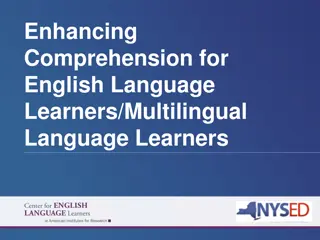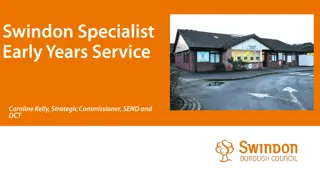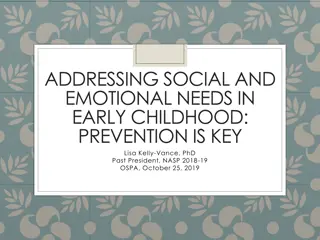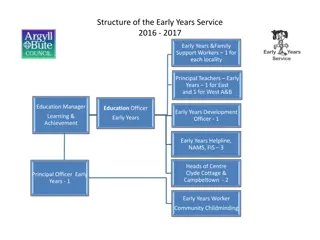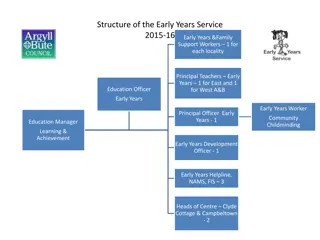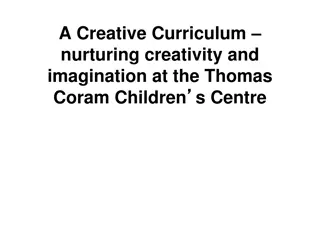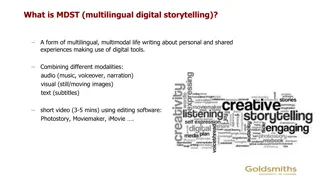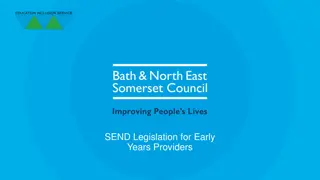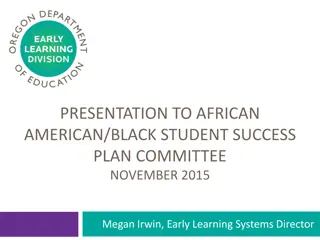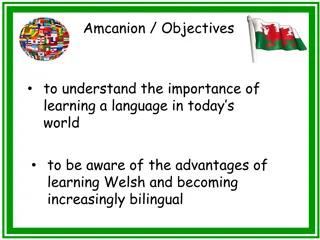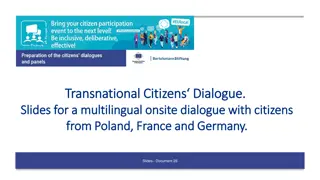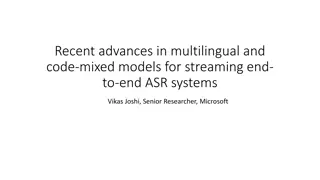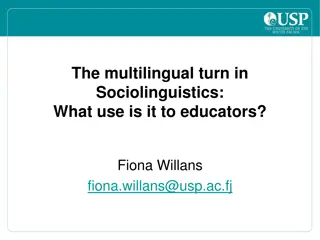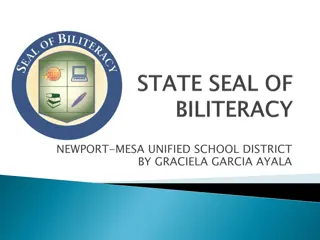Supporting Multilingual Children in Early Years Settings
The number of children in settings with families using languages other than English has increased, raising questions about language use at home. Encouraging parents to use their most fluent language supports secure bonding, cognitive development, and speech skills. Growing up multilingual has various advantages, including better school performance and health outcomes. Supporting children to be fluent in all languages, including English, is important for them to benefit fully from multilingualism.
Download Presentation

Please find below an Image/Link to download the presentation.
The content on the website is provided AS IS for your information and personal use only. It may not be sold, licensed, or shared on other websites without obtaining consent from the author.If you encounter any issues during the download, it is possible that the publisher has removed the file from their server.
You are allowed to download the files provided on this website for personal or commercial use, subject to the condition that they are used lawfully. All files are the property of their respective owners.
The content on the website is provided AS IS for your information and personal use only. It may not be sold, licensed, or shared on other websites without obtaining consent from the author.
E N D
Presentation Transcript
Dear colleagues The number of children in settings whose families use a language other than English at home has risen a lot in recent years. Some of these families will use one language at home; some more than one. Some will use English alongside other languages; some won t. We know that the best advice to give parents is that they should use whichever language they are most fluent in with their child, but to some parents this can seem a bad idea. Some parents may take the view that the most important langauge for their child to learn is English, and that therefore it follows that they should be focussing on English at home. This can seem like common sense, and it might sometimes be difficult for us to challenge that view. This tool is designed to equip you with some of the information and arguments you might need to make the case for using first language at home. Make sure you re in slideshow mode, and then click on any of the questions in the next slide to reveal the answer! Yours, EMTAS
What language should parents use at home? Is it an advantage for a child to grow up multilingual? Wiltshire EAL Helping Hand for Early Years Practitioners What s a successful outcome for multilingual children? What will best support children to learn English? How might these children use language?
Wiltshire EAL Helping Hand for Early Years Practitioners Parents first language (or if not first, their most fluent) is the language of secure bonding it s important parents use it for building secure attachment, to support children s cognitive development and to develop their child s speech language and communication. This doesn t mean parents shouldn t use other languages at home as well! BACK
Wiltshire EAL Helping Hand for Early Years Practitioners It s a huge advantage to grow up using more than one langauge. Multilingual children achieve better results at school (for example, on average, they do better at GCSE) and get better health outcomes (for example, there s evidence multilingualism delays the onset of dementia.) Multilingual children develop better problem-solving and multi-tasking skills, as well as a range of other advantages. BACK
Wiltshire EAL Helping Hand for Early Years Practitioners Over time, we should support multilingual children to attain a good level of fluency in all their languages, including English so they can benefit from the many advantages of multilingualism. Of course parents have a key role in helping their child to develop language skills in the home, and first language storytelling, rhymes, play etc. should all be encouraged. BACK
Wiltshire EAL Helping Hand for Early Years Practitioners BACK Children learn English faster if they are building on firm foundations in their first language. If you can already do something in one language, it s much easier to learn to do it in another. If you know about something in your first langauge, this will help you make sense of it in English. On average, children with well-developed first language reach fluency in English 2 to 3 years sooner than children without.
Wiltshire EAL Helping Hand for Early Years Practitioners They might go through an extended silent period on first being exposed to English in the setting (in my view, it would be better to call this a listening period because what children are doing is absorbing new language); They might code switch starting sentences in one language and finishing in another; They might listen to parents speaking one langauge, but only respond in English. All of these things are fine! BACK
Wiltshire EAL Helping Hand for Early Years Practitioners Where to go for more: The Best Start In Life Toolkit Wiltshire Speech and Language Therapy Service have produced an information leaflet for parents that you can find at www.wiltshirechildrensservices.co.uk/speech-language-therapy Wiltshire EMTAS have messed about with Development Matters to add some additional EAL advice and you can see the results here. The National Literacy Trust have produced a series of bilingual quick tips in 18 languages (so far) that you can find here.




